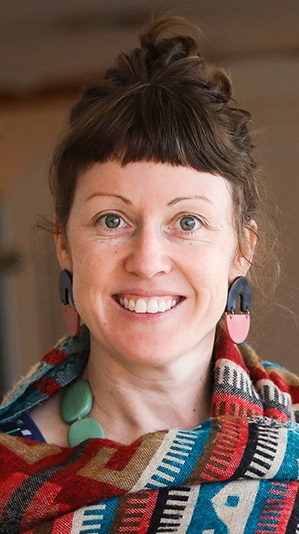Important Dates
- Full manuscript submissions due: 31 January 2026 NOTE: Late submissions will be accepted at the discretion of the editors.
- Publication of the special issue: Rolling publications & final issue publication date mid- 2026.
Guest Editors
Dr. Denyse Lafrance Horning

- Institutional affiliation: Nipissing University, Canada.
- Contact email: denyseh@nipissingu.ca
Dr. Denyse Lafrance Horning is an Associate Professor in the School of Business at Nipissing University (Canada) and also serves as an Associate Faculty Member in the Master of Kinesiology program. She holds an interdisciplinary PhD with a focus on sponsorship marketing and is actively involved in a range of experiential and work-integrated learning (WIL) initiatives. Her contributions include participation in Elon University’s Center for Engaged Learning WIL Research Seminar (2022–2024), serving on the editorial board of the Journal of Experiential Education (2022–present), holding the position of Nipissing University Experiential Learning (EL) Teaching Chair (2018–2020), and currently acting as Chair of the Nipissing University EL / WIL Working Committee.
Dr. Ange Fitzgerald

- Contact email: ange_online@hotmail.com
Ange is nationally and internationally recognised for her academic activities that promote and enhance the professional practice of both pre-service and in-service teachers. Ange Fitzgerald has led International Professional Experience (IPE) programs in 2015-16 and in 2017 she held the role of Director of Professional Experience, Education. Outside this space, she works with initial teacher education students, mainly in the area of primary science education as well as in general education studies focused on development and engagement. Ange seeks to understand what defines effective teaching practices and environments as well as provide evidence-based practical implications and insights for educators. She is widely published (over 50+ books, edited books, book chapters and journal articles) and has significant success in attracting funding (approx. $2.5M across 24 research projects and scholarship opportunities and nine national and international tenders and consultancies). Driven by her strongly-held values of generosity and kindness, Ange gives back to her academic community through mentorship of early career academics, participation in national accreditation panels, involvement with her professional association and numerous editorial activities.
Scope of the Special Issue
Partnerships are central to the success and sustainability of Work-integrated Learning (WIL). This special issue of WIL in Practice will explore the diverse ways in which partnerships enhance WIL initiatives across multiple disciplines, professions, and sectors.
This special issue offers an opportunity to contribute to the growing body of knowledge on how partnerships shape the practice, administration, and outcomes of WIL. We invite authors/academics/professional staff/administrators to submit their work and contribute to advance the conversation on building effective, inclusive, partnerships/collaborations in WIL.
This issue seeks to examine the dynamics, challenges, and innovations in WIL partnerships, including those between:
- Education providers/Post-secondary institutions (i.e., universities, colleges, vocational education providers), industry and community partners, and students.
- Governments and policy bodies in shaping WIL frameworks and funding opportunities.
- Multi-disciplinary partnership-based collaborations within and across institutions and sectors.
- WIL practitioners, administrators, industry/community partners and students as co-creators/co-designers
Key Themes
Potential topics include, but are not limited to:
- Cross-sector collaboration: How partnerships between industry, education, and government shape WIL opportunities.
- Legal, ethical, and policy considerations in WIL partnerships.
- Challenges/successes in how partnerships are managed: Addressing barriers/affordances/scaling WIL collaborations.
- Equity, diversity, and inclusion in WIL partnerships: Ensuring meaningful participation for all.
- Impact of WIL partnerships on employability: Evaluating how partnerships influence graduate outcomes.
- Multi-/Inter-disciplinary WIL collaborations: Case studies on cross-disciplinary initiatives in WIL.
- Current and emerging partners of WIL (post-secondary institutions, industry, community, government, etc.)
- Virtual WIL partners.
- Management of sustainable WIL partnerships.
- Benefits and challenges for partners of WIL.
- Roles and responsibilities across WIL partners.
- WIL design / Co-design: Quality, inclusivity, accessibility, etc.
- Partnership impacts on the resources/funding of WIL.
Submission Types
We invite submissions that explore best practices, new models of collaboration, emerging trends, and strategies to strengthen partnerships in WIL. Submissions may focus on case studies, empirical research, professional reflections, or theoretical discussions that critically examine the evolving nature of partnerships in WIL.
We encourage contributions from early-career, emerging and established researchers, practitioners, and administrators in the field of WIL. Submissions may include:
- Research articles (empirical or theoretical)
- Case studies on WIL partnerships
- Professional reflections on the role of partnerships in WIL
- Policy analyses related to WIL collaboration
For further information on the submission process, please refer to the WIL in Practice website: https://wilinpractice.nafea.org.au/index.php/WILIP/about/submissions
